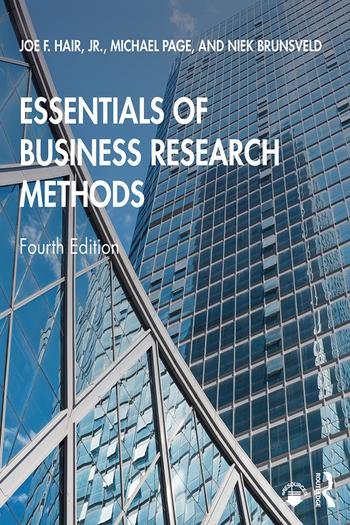Question
ASSESSMENT FROM ECE3002: Title: Effective Leadership in Early Childhood Education: Fostering Positive Relationships Introduction: Effective leadership in the field of early childhood education (ECE) is
ASSESSMENT FROM ECE3002:
Title: Effective Leadership in Early Childhood Education: Fostering Positive Relationships
Introduction:
Effective leadership in the field of early childhood education (ECE) is a critical component that shapes the experiences of young children, families, and the community. As I embark on this reflective journey, I aim to explore my own philosophy of leadership and its profound connection to relationships within ECE Centers. This essay delves into the concepts and practices that I believe will make me an effective leader, the role of leadership in nurturing positive relationships, and how these leadership principles guide administration tasks within ECE Centers.
My Philosophy of Leadership:
In my view, effective leadership in the ECE context involves several key concepts that are pivotal to my philosophy:
- Child-Centered Approach:I believe in a child-centered approach to leadership, where the well-being, development, and happiness of children are at the forefront of all decisions and actions. This concept underpins the idea that leaders should prioritize the best interests of children in ECE centers.
- Open Communication:Communication is the cornerstone of successful leadership. Leaders should foster open, honest, and respectful communication with peers, families, and the community. This concept promotes transparency and collaboration.
- Empathy and Understanding:Effective leaders in ECE possess empathy and a deep understanding of the diverse needs and backgrounds of children and families. They create inclusive environments that value every child's uniqueness.
- Continuous Learning:Leadership in ECE is an ongoing journey of learning and self-improvement. Leaders should be committed to professional development and staying updated with best practices in early childhood education.
Reflection & Analysis:
Examples of Effective Leadership:
One example of effective leadership that I have witnessed in an ECE setting is the practice of active listening. A leader who listens attentively to the concerns and ideas of peers, families, and the community demonstrates empathy and respect. This concept aligns with the idea that leadership should prioritize open communication and understanding. Active listening promotes trust and strengthens relationships within the ECE Center.
Another instance of effective leadership is the implementation of a child-centered curriculum. Leaders who design curricula that are developmentally appropriate and responsive to children's interests and needs prioritize the well-being and development of children. This approach exemplifies the child-centered philosophy, where leaders ensure that every child's unique journey in ECE is supported.
Negative Leadership Experience:
I once encountered a negative leadership experience where a leader in an ECE Center failed to address concerns raised by both educators and parents. This leader lacked open communication and empathy, which led to a breakdown in relationships. Reflecting on this situation, I realized that I would have acted differently by engaging in transparent communication, actively seeking feedback, and demonstrating empathy toward the concerns raised. This negative experience reinforced the importance of effective leadership concepts, such as open communication and understanding.
Causes of Negative Experience:
The negative experience was primarily caused by the leader's lack of responsiveness and failure to acknowledge the valid concerns of peers and parents. This lack of responsiveness can be linked to a deficiency in open communication and empathy. It also highlighted the importance of a child-centered approach, as the concerns directly relate to the well-being of the children in the ECE Center.
How My Leadership Philosophy Guides Administration:
My leadership philosophy informs various administration tasks within ECE Centers. For instance, when developing policies and procedures, I prioritize open communication channels to ensure that educators, families, and the community are informed and involved. This approach aligns with my belief in transparent communication.
Moreover, in staff management, I emphasize continuous learning and professional development. I encourage educators to engage in ongoing training and reflection, promoting a culture of improvement. This reflects my commitment to the concept of continuous learning in leadership.
Conclusion:
In conclusion, effective leadership in early childhood education is profoundly intertwined with relationships with peers, families, and the community. My philosophy of leadership, which centers on a child-centered approach, open communication, empathy, and continuous learning, guides my actions as a leader in ECE Centers. Reflecting on examples of effective leadership and a negative experience has reinforced the significance of these concepts. As I continue my journey in ECE leadership, I am committed to nurturing positive relationships, fostering open communication, and prioritizing the well-being and development of children.
That is my unit ece 3002 .
QUESTION :
To get started on your assessment task, please follow the below instructions.
- Re-read your ECE3002 leadership proposal.
- Note to yourself where your project changed from your original proposal.
- Read through your placement diary to remind yourself of your new understandings
- Prepare your visual presentation of your leadership placement
INSTRUCTIONS
To get started on your assessment task, please follow the below instruction
Do presentation of your leadership project. Use powerpoint (or any presentation software program) to engaging presentation with key information or images only on the slides. Focus on the presentation being engaging and not just reading your slides to the audience.
- Include your original idea of what you wanted to change and why, how you went about this, and what was the result.
- Include information about how your personal experience of leadership developed
- Refer to any references as suitable, including the NQS, EYLF/VEYLDF, leadership literature and any other literature that is suitable to your particular topic.
Step by Step Solution
There are 3 Steps involved in it
Step: 1

Get Instant Access to Expert-Tailored Solutions
See step-by-step solutions with expert insights and AI powered tools for academic success
Step: 2

Step: 3

Ace Your Homework with AI
Get the answers you need in no time with our AI-driven, step-by-step assistance
Get Started


